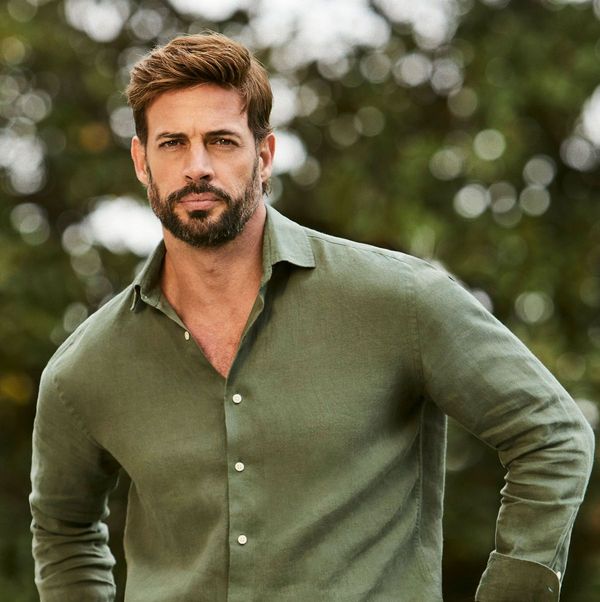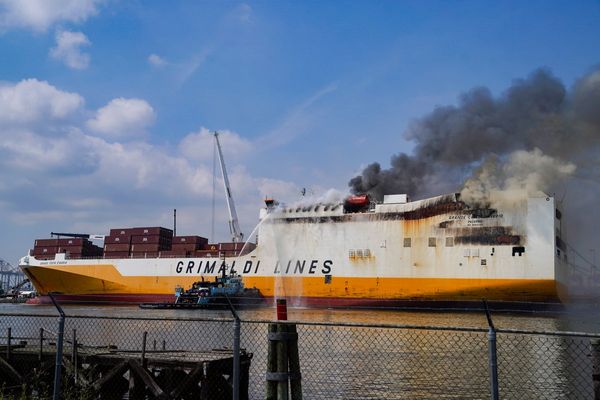
The UK faces a choice between using statecraft to plan and deepen its international alliances or simply managing relations with its rivals and risk sliding into war, Rishi Sunak’s foreign policy adviser has said.
In a sweeping lecture on Britain’s “grand strategic moment”, John Bew drew on how the national character had been shaped by history, claiming the fundamental assumptions about how British leaders have thought about the world had been shaken by events.
He said “great power dynamics, great power politics, are back in play in a serious way”.
“We cannot live in an era where we just manage risk, we are in a competition,” he added.
Bew, a historian and biographer of Clement Attlee, was the principal author of two Conservative integrated foreign and security reviews in 2021 and 2023, but an incoming Labour government could ask him to remain in position as it seeks some continuity in navigating relations with China, Russia and a more isolationist US – as well as life outside the EU regulatory bloc.
Speaking at the Sorbonne in Paris last month, he said: “In these grand strategic moments, liberal democratic capitalist economies struggle with planning, but the lesson of certainly the interwar years – certainly the period of the middle part of the century – is that planning and finding a way to plan against, and in competition with, adversaries, those who don’t share your values and who ‘plan, plan, plan’, is a crucial element of an effective grand strategy.
“That’s quite a hard thing for us to do. I think we are at the bottom of the foothills, but we recognise we must make that journey.”
He said that reckoning was shared across Europe. In what he described as an activist period for British foreign policy akin to French diplomacy, he said the UK was seeking to assert the importance of alliances and partnerships, arguing some of those alliances had become “white hot” in their depth and involvement.
He said: “What is happening in international affairs across Europe is a qualitative shift in the depth of alliances, involving technology, trade and shared defence industrial development.”
He argued that “not only can there be deeper defence industrial cooperation in Europe, there has to be … so long as it is done in a way that it does not undercut Nato.”
Quoting Tony Blair, he said the kaleidoscope had been shaken, requiring thinkers across Europe to look for new concepts, formulas and forums. “There’s a strategic convergence but there’s not always the strategic instruments or levers to pull,” he said.
He drew a comparison to the decade before the outbreak of the first world war, saying one future was for the UK “in fear of war to try to scramble for allies and partners, and we get it wrong”.
But, he said, “there is a more optimistic version in which the west effectively reimagines and rethinks the way we pool resources in an era when we have less global share of resources, so we co-create in areas of strategic competition.”
He contended: “If we do that effectively, we might be able to celebrate a success for statecraft and security, something that avoids some of the more depressing and bleak predictions that we’re sliding into war.”
As part of this deeper European cooperation, he suggests the UK could become a fourth member of the current Weimar triangle of Poland, Germany and France. He said British involvement “makes sense, the more you look at European security, where the investment is going, the kind of shared assessment and community of concern.”
He said: “One would imagine that the UK’s relationship in security will continue to evolve in Europe, and the strategic question for the EU is: what sort of relationship does it want with a large, friendly, considerable military power that shares interests, values and security concerns just to the north of it?”
He urged the UK to see the possible election of Donald Trump in a wider historical context, pointing to Henry Kissinger’s description of the US as an always ambivalent superpower, a phrase Kissinger coined during the Obama era, reflecting deep-seated American attitudes to world engagement.
He said: “The UK-US security relationship is deep and structural, built on intelligence, nuclear, interoperability of our armed forces. That is deep tissue. Is there a bigger, broader strategic question for Europe and Nato about its own defence? The answer is yes, but that argument has been made quite vividly since Obama across the 20th century.
“We do ourselves no service if we think just in terms of quick turns of the wheel, or immediate excitability,” he added.
He admitted the strategic “conundrum that the UK faces is one which is being outside a large regulatory bloc, and it has two very close allies and partners in the EU and the United States, which share values and most security concerns as well.
“So how it operates around that, we’re at the start of that story as opposed to having a fundamental final answer to it. But there’s a recognition among states who operate outside those large regulatory blocks, and around the G7, that that is a challenge.”
He said free-trade countries such as the UK and Japan could not respond through protectionism or autarky, so they had a particular navigational challenge.







